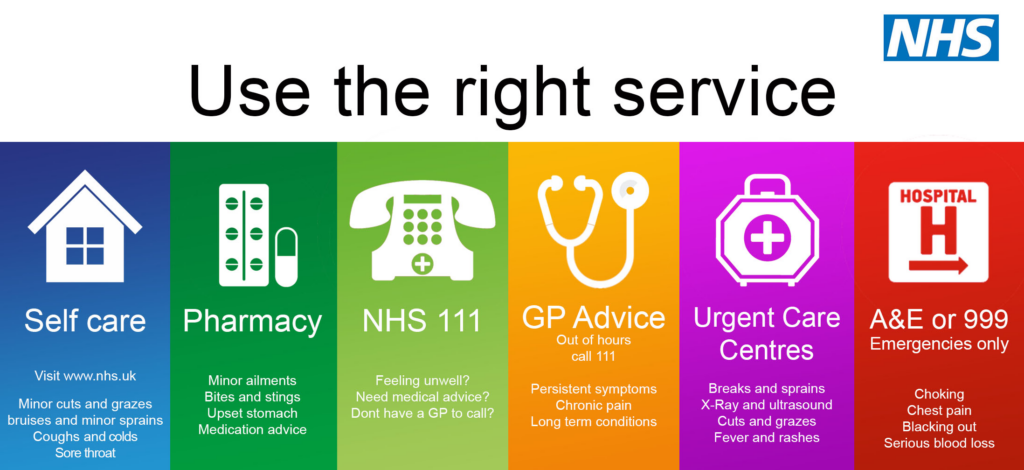What is Self Care?
The actions that individuals take for themselves, on behalf of and with others in order to develop, protect, maintain and improve their health, wellbeing or wellness. From coughs, colds and sore throats to upset stomachs, aches and pains, self-care at home is the best choice to treat every minor illnesses, ailments and injuries.
Self Care Benefits
Empowering people with the confidence and information to look after themselves when they can, and visit the GP when they need to, gives people greater control of their own health and encourages healthy behaviours that help prevent ill health in the long-term. In many cases people can take care of their minor ailments, reducing the number of GP consultations and enabling GPs to focus on caring for higher risk patients, such as those with comorbidities, the very young and elderly, managing long-term conditions and providing new services.
More cost-effective use of stretched NHS resources allows money to be spent where it’s most needed and improve health outcomes. Furthermore, increased personal responsibility around healthcare helps improve people’s health and wellbeing and better manage long-term conditions when they do develop. This will ultimately ensure the long-term sustainability of the NHS.
Quicker, easier and simple!
Quicker: No need to wait for a GP appointment. You can buy the medicines you need over the counter at your local pharmacy or supermarket and have them ready to use at home.
Easier: Many treatments can be bought without the need for a prescription at your local pharmacy or supermarket, often for much less than a prescription charge.
Simple: Advice and information about self-care is widely available online. You can also call into any pharmacy for advice on the best treatment for your minor illnesses.
What happens if you give up on self-care?
Despite people’s willingness to initially self-treat, there are still 57 million GP consultations a year for minor ailments at a total cost to the NHS of £2 billion, which takes up, on average, an hour a day for every GP.
Research shows that people often abandon self care earlier than they need to, typically seeking the advice of a doctor within a period of 4-7 days. The main reasons for this are:
• Lack of confidence in understanding the normal progress of symptoms (e.g. a cold can last up to 14 days)
• The perceived severity and duration of symptoms
• Reassurance that nothing more serious is wrong
• A prescription to ‘cure’ the illness, even though the same medicine may be available over-the-counter

Preparing to self-care
With the NHS’s understanding that self-care plays such an important role in ensuring the sustainability of our national health service, as well as the ongoing health of our population, there are plenty of resources and information available to support you, to help manage minor illnesses.
Be prepared and stock up your medicine cabinet. These affordable key items will help when you, or your family and friends, are feeling under the weather…
Medicines:
- Pain killers
- Cold and flu remedies
- Decongestants
- Antihistamines
- Anti-diarrhoea medication
- Oral re-hydration salts
- Indigestion remedies
First Aid:
- Bandages
- Plasters
- Thermometer
- Antiseptic
- Eyewash solution
- Sterile dressing
- Tweezers
Useful Tips:
Painkillers:
Aspirin, paracetamol and ibuprofen are highly effective at relieving most minor aches and pains.
Antihistamines:
Useful for dealing with allergies, insect bites and hay fever.
Oral rehydration salts:
Oral rehydration salts can help restore your body’s natural balance of minerals and fluid lost through diarrhoea, fever, and vomiting – if you can’t continue your normal diet.
Indigestion treatment:
If you have stomach ache, heartburn or trapped wind, a simple antacid will reduce stomach acidity and bring relief.
Anti-diarrhoea tablets
It’s a good idea to keep anti-diarrhoea medicine at home as diarrhoea can happen without warning. causes include food poisoning and a stomach virus.
Sun cream
Keep a sun cream of at least factor 15, with UVA protection. Exposure to the sun can cause sunburn and increase your risk of skin cancer.

